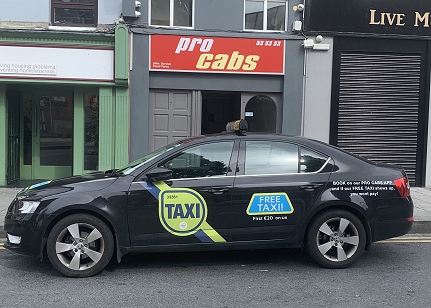COVID-19
Taxi Passenger Plan - Face masks are now compulsory in taxis
Given the concern about coronavirus (COVID-19), we are closely following public health guidelines to provide the most up to date information on how to protect yourself and others.
Face coverings are now mandatory in retail outlets, in taxis, in bus and rail stations, on public transport and for workers in customer facing roles in cafés, bars and restaurants Wearing of cloth face coverings not only help protect you, but also prevent people who do not know they have COVID-19 (Coronavirus) from spreading it to others. https://www.gov.ie/en/publication/aac74c-guidance-on-safe-use-of-face-coverings/
1/ If you feel sick, stay at home
If you have a mild illness, respiratory symptoms, or have a fever (38 C or above), stay home and keep away from others. If your symptoms get worse, call your doctor.
2/ Wash your hands frequently
Wash your hands with liquid soap and water for at least 20 seconds or use an alcohol-based hand sanitizer with at least 60% alcohol to disinfect your hands. Avoid touching your eyes, nose, and mouth with unwashed hands.
3/ Cover your cough or sneeze
Use a tissue to cover your cough or sneeze and throw the tissue in the bin, then wash your hands. If you don’t have a tissue within reach, cough or sneeze into your elbow.
4/ Sit in the back
Where possible, we recommend that all customers sit in the back of the vehicle. ProCabs will be sending a text message to passengers when booking to advise this.
5/ Use card machines
We encourage customers to make card payments to reduce cash handling.
Symptoms of coronavirus
- A cough
- Shortness of breath
- Breathing difficulties
- Fever
If you have these symptoms, have been in close contact with someone who has the virus or someone who has been to an affected area, please self-isolate and contact your GP or call 112.
For more information,https://www2.hse.ie/conditions/coronavirus/coronavirus.html
This plan was created on the 12th March 2020 and will be updated accordingly upon advice from the HSE, government bodies such as the NTA, medical practitioners and other health care professionals.

